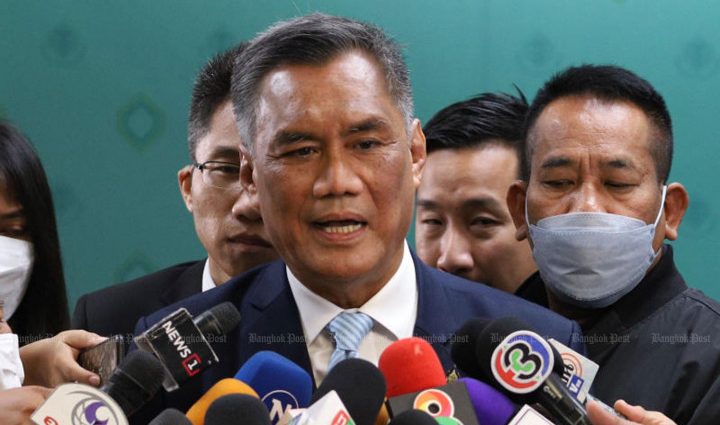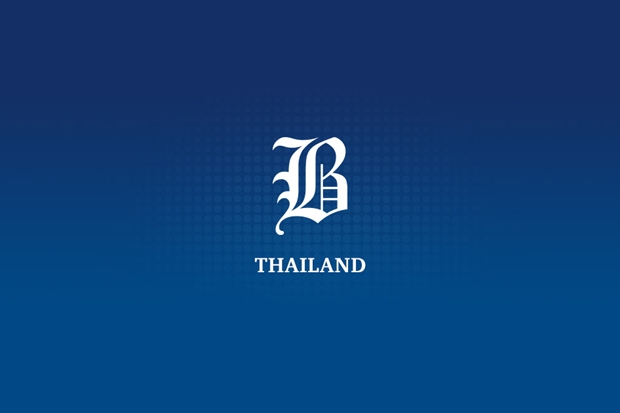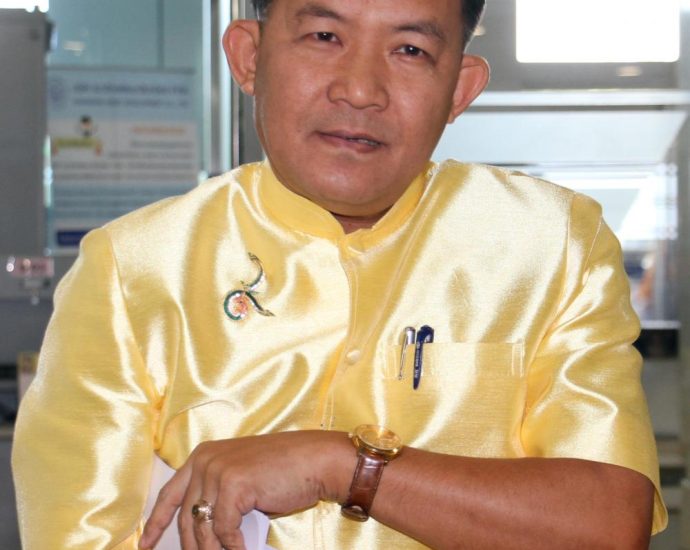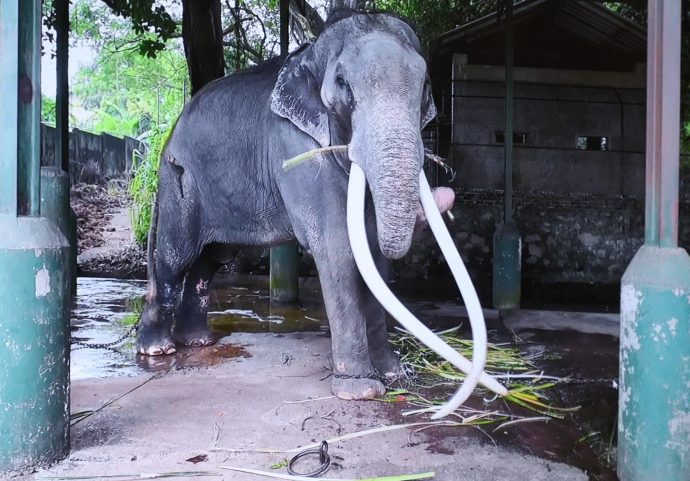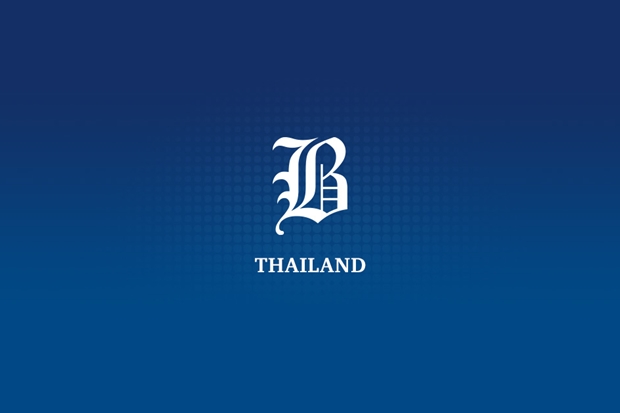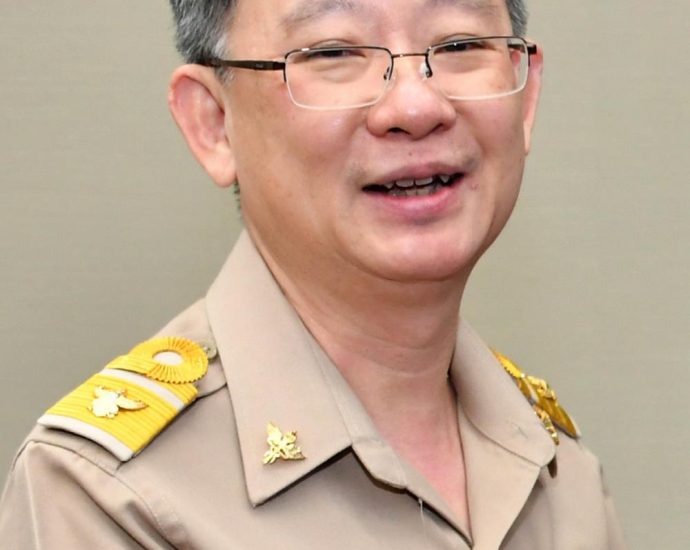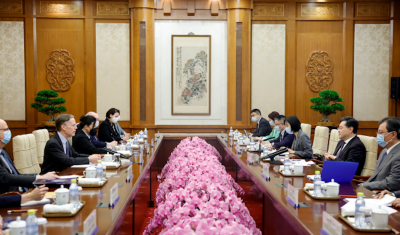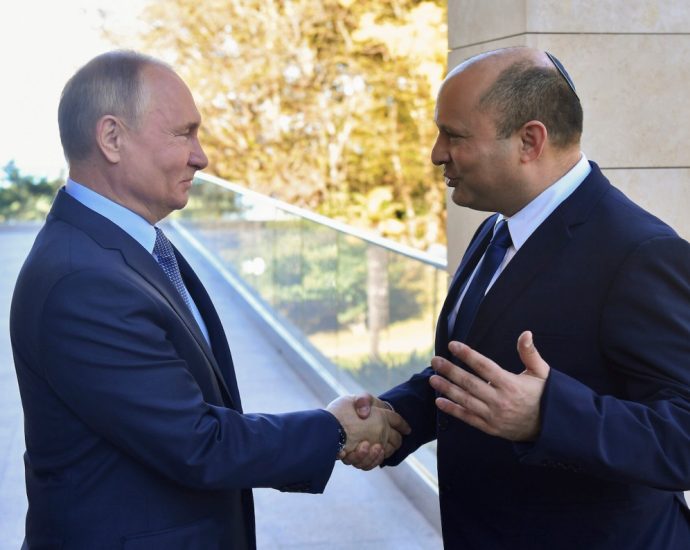Pita to become MP before EC decides
MFP leader’s fate hinges on iTV shares
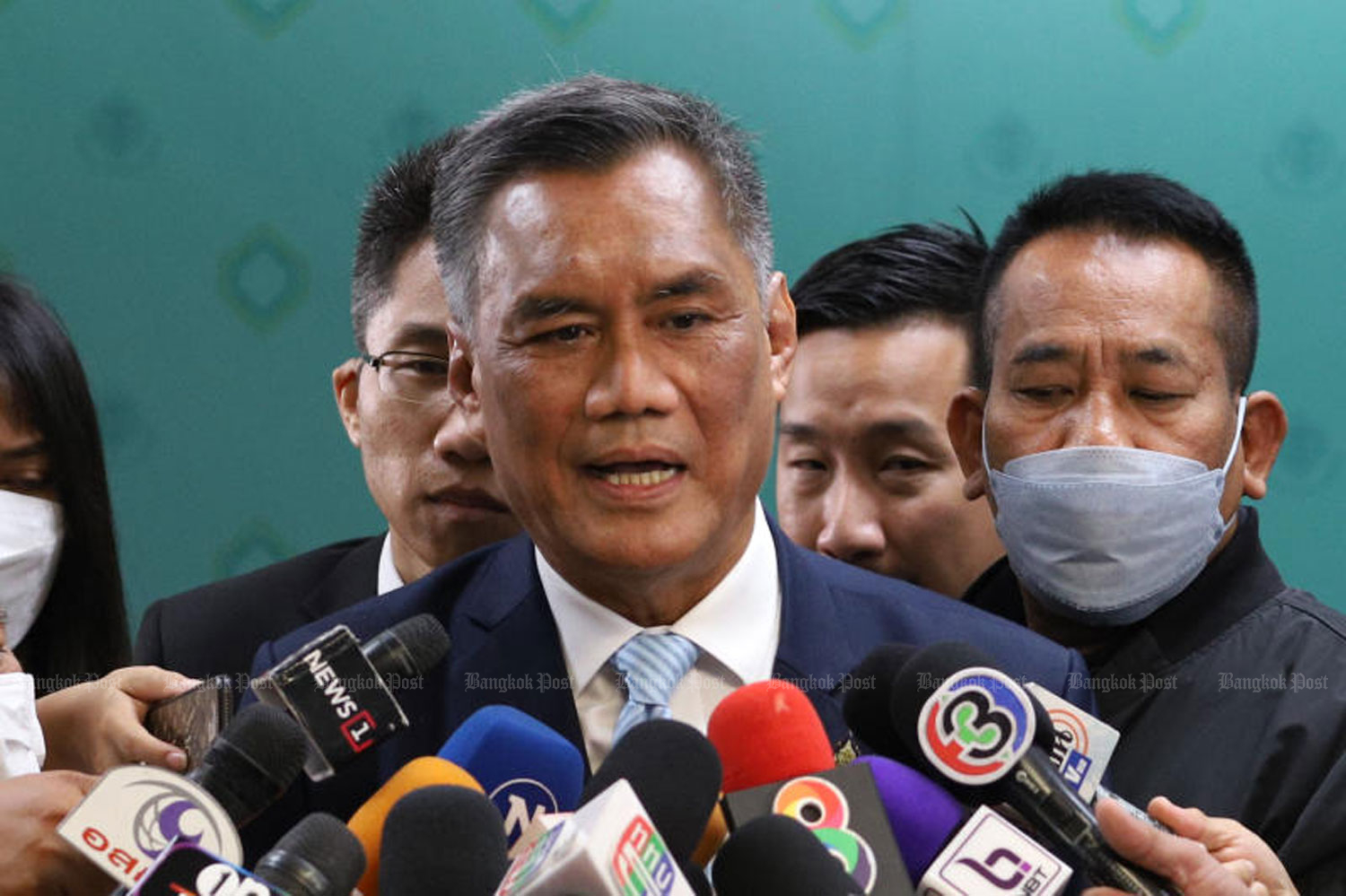
The Election Commission (EC) says it will have to endorse the MP status of Move Forward Party leader Pita Limjaroenrat before it can consider whether to strip him of it over his alleged share-holding offence.
EC secretary-general Sawaeng Boonmee said the petitions against Mr Pita were lodged after the qualifications of election candidates were examined, so the EC could not forward them to the Supreme Court before Election Day on May 14.
He said the EC will have to endorse Mr Pita as a list-MP as part of the election process and then consider if he is qualified to hold the post.
However, he said the EC can investigate a criminal offence against Mr Pita, saying it can consider if he has violated Section 151 by applying as a list-MP candidate despite knowing he may not have been eligible to run for the House seat.
“It’s the Office of the EC’s job to gather information and submit it to the EC to decide if he has violated Section 151 by applying to contest despite having been fully aware he probably wasn’t eligible to.
“The EC can’t consider Mr Pita’s status as an MP because he isn’t an MP yet. If he is endorsed and the EC has questions about his qualifications, it can ask the Constitutional Court to rule,” Mr Sawaeng said.
His clarification came after EC chairman Ittiporn Boonpracong said on Wednesday that the poll agency was considering whether to accept the complaint against Mr Pita over his alleged shareholding in a media company.
Political activist Ruang-krai Leekitwattana petitioned the poll agency on May 10, four days before election day, to investigate Mr Pita over 42,000 shares he held in iTV, an independent broadcaster founded in the 1990s.
Under the current constitution, an election candidate is barred from running for office if they own shares in a media company.
Mr Sawaeng also said people can observe a recount of votes received by MPs-elect at 47 polling stations across 16 provinces tomorrow, and the recount will be recorded as evidence.
The recount was ordered after the EC found that the total number of ballots cast for the candidates did not match the number of people who turned out to vote.
He said the recount would not affect the election results in the constituency system, but it will force a recalculation of party-list votes.
PM urges action on ‘Pattani State’ call

Prime Minister Prayut Chan-o-cha has told the National Security Council (NSC) to take action against a group of activists that called for a public referendum on whether there should be a Muslim “Pattani State” independent from Thailand.
The referendum call came in a seminar titled “Self-determination”, which introduced the “National Student Movement” or “Pelajar Bangsa” of the four southern border provinces that encouraged local residents to cast a vote for such a move at the Prince of Songkla University Pattani campus on Wednesday.
NSC secretary-general Supoj Malaniyom yesterday said that the NSC informed the premier about the matter and then ordered a fact-finding probe into the individuals concerned out of fears the call could lead to disunity. The NSC will hold a meeting next Monday to discuss the matter.
“The call for a public referendum on independence is apparently illegal and doesn’t benefit anyone,” said Mr Supoj.
“The security law must be imposed in the South in an attempt to prevent damages to properties and danger to people. Moreover, there is also the mechanism of peaceful dialogue which widens the chances of academics and representatives from many sectors participating in a discussion without activities that lead to societal disharmony.”
Meanwhile, Somchai Sawaengkan, the chairman of the Senate Committee on Human Rights, Freedom and Consumer Protection, urged the Internal Security Operations Command (Isoc) and security agencies to investigate the matter as he believed there might be a political party behind this pulling the strings.
Mr Somchai also urged the Election Commission (EC) to inspect certain politicians and elected MPs who attended the event. He claims he has a video clip of them.
“I believe that these students had no idea their move was illegal as there must have been adults behind this. We can respect freedom of expression, but a whole separatist movement will cause too much commotion,” he said.
Srisuwan to appeal after dept revokes his licence
Political activist Srisuwan Janya said he will appeal an order revoking the registration of the Association to Protect the Thai Constitution, for which he serves as the secretary-general.
He said he would carry on with his work despite the registration being revoked, adding that he faces political pressure because of the nature of the job. “I’ll carry on with my work…scrutinising politicians, political parties and state officials. I’ll intensify my work,” he said.

Srisuwan: Member quota not met
His comments came in response to a Department of Provincial Administration order dissolving the association on the grounds that it did not meet membership requirements.
According to the department, the association was registered on May 13, 2009, with three founding members and 11 prospective members.
However, the department found that three of those listed as potential members claimed they had never applied for membership in any capacity, while two more of those named admitted they had not attended a 2008 meeting held to acknowledge the formation of the association.
The department ruled that the statements constituted grounds to revoke the licence application as it did not meet the requirements stipulated in Section 81 of the Civil Code that an association must have at least 10 members.
The association can appeal the order within 15 days of being notified, and Mr Srisuwan said he will call a meeting with legal experts to look into the matter.
He insisted that he had received authorisation from all those named, but some of them, who are 70-80 years old now, could have forgotten about the 2008 meeting.
In June last year, lawyer Anantachai Chaidej, assigned by the Seri Ruam Thai Party, asked the department to dissolve the association after Mr Srisuwan accused Bangkok governor Chadchart Sittipunt of not being transparent.
Mr Ananchai said Pol Gen Sereepisuth Temeeyaves, leader of the party, appointed him to lodge a complaint seeking the association’s abolition over the accusation.
Kingdom set to repatriate sick elephant
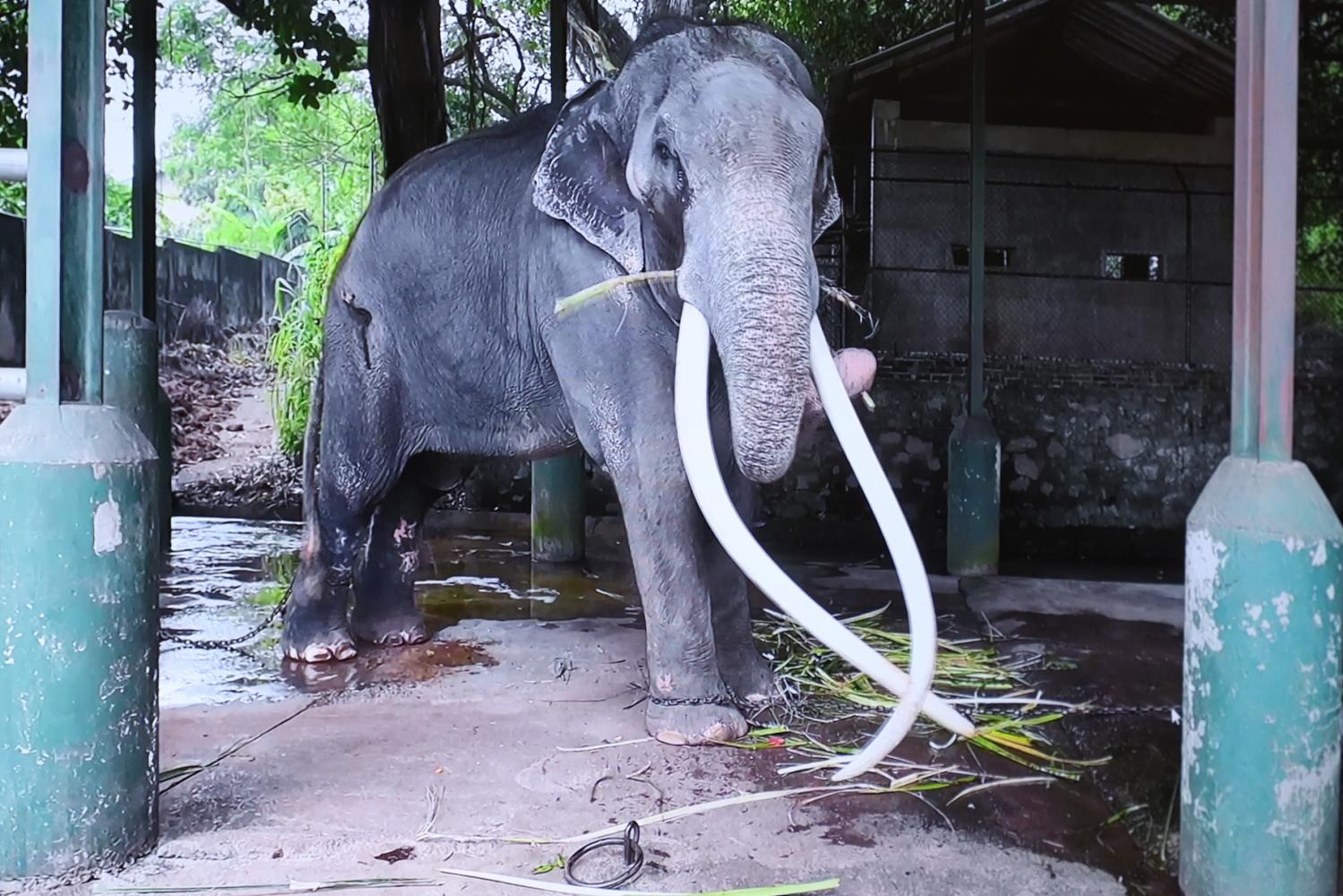
The Ministry of Natural Resources and Environment has set aside a 19-million-baht budget to repatriate an ailing Thai elephant called Sak Surin from Sri Lanka next month, according to minister Varawut Silpa-archa.
The male elephant was one of three Thailand sent as goodwill ambassadors to the South Asian nation in 2001. According to a complaint by Rally for Animal Rights & Environment, the elephant has been mistreated for years.
Mr Varawut said the elephant would arrive at Chiang Mai airport on July 2 and be placed under quarantine for 14 days at the Chiang Mai Zoo or the Thai Elephant Conservation Centre in Lampang, depending on his condition after a six-hour flight.
A medical team has been sent to Sri Lanka to familiarise the elephant with his custom transport cage, he said.
“I would like to express my appreciation for all kinds of assistance, especially the Sri Lanka government for kindly offering help to us,” he said. “Sak Surin may take time to recover, and it is best to give medical treatment in Thailand.”
Chuan’s son faces NFT fraud claims worth B15m

Surabot Leekpai, a young Democrat Party politician and son of parliament president Chuan Leekpai, is facing accusations of involvement in a fraudulent non-fungible tokens (NFTs) investment project. The alleged fraud has resulted in damages amounting to 15 million baht.
In late 2021, Mr Surabot, also a popular YouTuber known as “Pluem” on his own VRZOChannel, launched the Crypto Ronin NFT project. This project showcased collaborations between influencers and net idols who would become playable characters in his game. The announcement sparked a significant buzz among fans and investors.
An NFT refers to a digital asset, which can take the form of in-game items. Players can acquire these items during gameplay and then trade or sell them for cryptocurrency when they become rare and gain value over time.
Investors poured around 15 million baht into the project following its advertisement of a full release in last year’s second quarter. But reports indicated that the game experienced technical issues and was unplayable, leading Mr Surabot to conduct a meeting with investors. During the meeting, he assured them that the game would be released by August. However, the issue remained unresolved, and investors later discovered that the project had not yet been certified by Bitkub Chain, Thailand’s popular blockchain network.
Despite the company’s announcement of the game’s initial launch phase, investors discovered that the gameplay was unprogressive after playing a short portion of it. The full release of the game had been postponed four times, and due to uncertainties surrounding it, Bitkub announced the withdrawal of the game from its registered projects in March.
The situation raised concerns among investors, who suspected potential fraud. They thus filed reports with the Cyber Crime Investigation Bureau (CCIB) against Mr Surabot.
According to Siam Blockchain, a Thai cryptocurrency news website, the victims of this were investors who had purchased a special NFT package. This package granted buyers the ability to utilise items in the game to generate income.
In response to the matter, Mr Surabot yesterday stated that his lawyer is handling the situation. He declined to comment on whether this matter would have any potential impacts on his father.
Currently, the channel boasts 6.95 million subscribers.
12 officers charged in truck sticker bribery case

Twelve highway police officers out of 40 implicated in the truck sticker bribe controversy have been charged with extortion and misconduct.
Pol Maj Gen Jaroonkiat Pankaew, the Counter Corruption Division (CCD) commander speaking in his capacity as acting Highway Police Division Chief, said yesterday that further charges would be announced after an anti-graft panel widened the probe.
He would not give details about the 12 charged from the group that originally included one inspector, 17 deputy inspectors and 22 non-commissioned officers, but said they will now work at the Highway Police Division operations centre pending further action.
Pol Maj Gen Jaroonkiat said he believed more officers and officials with higher ranks are involved including those from other agencies. A working panel of the National Anti-Corruption Commission (NACC) will extend the investigation, he added.
The scandal, said to have been prevalent for more than 20 years, was first brought to light by Wiroj Lakkhanaadisorn, a Move Forward party list MP-elect. The outspoken politician said overloaded trucks with special stickers were not being detained, nor were their drivers ever arrested.
After the initial reports, Pol Maj Gen Ekkaraj Limsangkat, commander of the Highway Police Division, was transferred to an inactive post at the Central Investigation Bureau on May 30.
A senior official of the Ministry of Transport admitted yesterday that there were loopholes in the system for regulating overloaded trucks.
The human factor — specifically, the use of discretion in determining which trucks to detain and which ones to let go — needed to be addressed, said Pisak Jitviriyavasin, the ministry’s deputy permanent secretary.
He said the ministry would focus on implementing immediate IT solutions to graft. Longer-term, a body camera system should be adopted, he said after chairing a meeting of a ministry fact-finding panel on the bribery scandal.
He has instructed the Department of Highways and the Department of Rural Roads to consider the use of body cameras by officers and plans to raise the issue for discussion at the next meeting on June 20.
The Department of Highways operates 97 permanent checkpoints for weighing vehicles, and the Department of Rural Roads has five.
The ministry would take disciplinary action against officials found involved in taking bribes from operators of overloaded trucks, Mr Pisak added.
Diarrhoea HQ to probe local spate
The Public Health Ministry has opened an emergency operations centre (EOC) and ordered an investigation after more than 100 people across three districts in Phuket fell sick from an unidentified pathogen which left many suffering from severe diarrhoea.
Dr Opas Karnkawinpong, the public health permanent secretary, said health authorities are looking into the cause, which was initially believed to be a virus.

Opas: Cause might be a virus
The provincial public health office has been instructed to open the EOC to handle the situation and work closely with provincial authorities as the investigation gets underway.
Dr Opas said that although diarrhoea has a low death rate, sanitation regulations still need to be strictly enforced to ensure it does not become a public health issue following reports of a flood of patients with symptoms on Thursday night.
Dr Kittisak Aksornwong, a health inspector-general, said many were admitted to hospitals in three districts of Muang, Kathu and Thalang although most of those who sought medical treatment only had mild symptoms, including stomach cramps, vomiting and a low-grade fever.
Several schools had also reported cases of students being struck by diarrhoea and ill health, he added.
Samples of water and ice were collected for examination, and health officials were sent to inspect the production and transport of drinking water in tambons Wichit and Chalaong to protect against contamination.
He urged people to consume only freshly cooked food and frequently wash their hands, while those who fall sick are advised to take sick leave where possible in order to curb transmission.
China, US move closer to high-level official talks
The China and the United States governments are getting closer to resuming high-level dialogue as media reported that US Secretary of State Antony Blinken will visit Beijing within several weeks, or as soon as next week.
CNN reported on Tuesday that Blinken will travel to China in the coming weeks. Politico reported on Thursday that his trip may occur next week.
Beijing has so far refused to comment on Blinken’s itinerary. It said the US and China should maintain dialogue but Washington must show sincerity and stop “saying one thing but doing another.”
Some Chinese commentators said it shouldn’t be surprising if Blinken visits Beijing, given that there have been several rounds of talks between US and Chinese officials over the past month. But they said Beijing will have limited expectations for meetings with US officials.

If confirmed, Blinken’s trip will mark the highest-level visit of a US official to China since then-Secretary of State Mike Pompeo visited the country in 2018. It will show an easing of Sino-US political tensions, which have been heightened by the Chinese balloon incident in late January.
Due to rising hopesof a bilateral thaw between the world’s two largest economies, the Dow Jones index has increased 258 points, or 0.8%, to 33,833.61 on Wednesday and Thursday. The Shanghai Composite index has also surged by 31 points, or 1%, to 3,231.41 on Thursday and Friday.
Choosing sides
On Friday, the Chinese foreign ministry called on all US diplomats to implement Blinken’s promise that Washington will not require other countries to choose sides between the US and China.
“We hope US diplomatic missions around the world will truly treat other countries’ development of relations with China with an open and inclusive attitude, stop suppressing Chinese companies including Huawei Technologies everywhere, stop coercing allies to restrict chip exports to China, stop luring other countries to give up their cooperation with China and stop spreading false information such as ‘China’s debt trap’,” Wang Wenbin, a foreign ministry spokesperson, said in a regular media briefing on Friday.

To describe the Sino-US relations, Wang used a quote from the first US president, George Washington, who said, “A slender acquaintance with the world must convince every man that actions, not words, are the true criterion of the attachment of friends.”
“We care about what the US says, but we care even more about what actions it takes,” he said.
Prior to this, Wang said on Wednesday that China and the US should maintain necessary communication but the responsibility for the current challenges facing China-US relations does not lie with China.
“The US needs to respect China’s core interests and major concerns, stop interfering in China’s internal affairs, stop harming China’s interests, and stop calling for communication on the one hand and making provocations on the other,” he said.
On Thursday, Blinken told the media during his visit to Saudi Arabia that the US is not asking anyone to choose between Washington and Beijing. He said Washington is only trying to demonstrate to other countries the benefits of having a partnership with the US.
Last December, China and Saudi Arabia signed a series of strategy deals, including one involving Huawei, during Chinese President Xi Jinping’s three-day visit to Riyadh. On March 10, Saudi Arabia and Iran agreed to reestablish diplomatic relations and reopen embassies after years of tensions. Chinese media said Beijing had contributed to the talks between Saudi Arabia and Iran.
‘De-risking’ plan
On May 20, G7 leaders said in a joint statement that they have a common interest in preventing a narrow set of technological advances from being used by some countries to enhance their military and intelligence capabilities to undermine international peace and security.
They said G7 countries are not decoupling with China but they also recognize that economic resilience requires “de-risking and diversifying.”
On Tuesday, the US Department of the Treasury’s Office of Foreign Assets Control (OFAC) sanctioned a network of seven individuals and six entities in Iran, China and Hong Kong in connection with Iran’s ballistic missile program.
“As a Chinese saying goes, ‘Good faith makes good things happen.’ Dialogue should be based on mutual respect and aim for real results,” Xie Feng, China’s Ambassador to the US, told the American business community during an event of the US-China Business Council on Wednesday.
“It surely is not the right way to seek dialogue and cooperation while putting the other on the sanction list,” he said. “Dialogue conducted only for its own sake will not work either. Saying one thing but doing another could only bring unintended results.”
“For high-level interactions, whole-process management is essential – fostering a good atmosphere in advance, accumulating outcomes in the process, and delivering on them afterwards,” he said.
He added that to many Chinese people, the word “de-risking” may be just another name for “decoupling.” He said the US should not use national security as an excuse for protectionism.
Diao Daming, an associate professor at the Renmin University of China in Beijing, told the Global Times on Wednesday that the US is trying to test China’s reaction to Blinken’s potential visit through media hype and is trying to shape its own image as a promoter for communication.
He said the series of actions recently taken by the US reflects Washington’s duplicity and self-contradiction.
China’s demands
In April, media reported that US President Joe Biden would sign an executive order to restrict US companies and private equity and venture capital funds from investing in China’s microchips, artificial intelligence, quantum computing, biotechnology and clean energy projects and firms. But there has been no update so far.
On May 8, China’s Foreign Minister Qin Gang met with US Ambassador to China Nicholas Burns in Beijing. On May 11, top Chinese diplomat Wang Yi and US National security adviser Jake Sullivan met in Vienna. On May 25, China’s Commerce Minister Wang Wentao met with US Secretary of Commerce Gina Raimondo in Washington, DC. The three meetings were described by both sides as candid and constructive.

“Proven by the three meetings, the tensions between the US and China have eased over the past one month,” a Guangdong-based commentator writes in an article published on Friday. “If US officials have to visit China, there is no harm for Chinese officials to meet them.”
“But when Blinken visits China, the Chinese government should issue an official warning to the Biden administration that if it continues to cross China’s red line over Taiwan issues and take extraordinary actions, the responsibility of shaking the Sino-US relations or causing military conflicts in the Western Pacific region will lie with the US,” the commentator says.
He says the Biden administration has not cancelled the extra tariffs and sanctions imposed on China but hopes that China will continue to buy US food, natural gas, airplanes and semiconductors, instead of purchasing goods from Brazil, Russia and France. He says Beijing must tell Americans that China will not purchase goods from countries that hurt its interest.
He adds that Blinken should answer why the Russian-Ukrainian conflicts have shown signs of spillover, which is bad news for Europe. He says problems will be resolved only if the US is willing to work with China.
Read: US-China trade talks end in more chip war salvos
Read: With Micron ban, China says no to ‘de-risking’
Follow Jeff Pao on Twitter at @jeffpao3
Ukraine plays âLight Brigadeâ with British advice

American and European military observers in Ukraine described the Ukraine Army’s efforts of the past two days as a “suicide mission” that violated the basic rules of military tactics. “If you want to conduct an offensive and you have a dozen brigades and a few dozen tanks, you concentrate them and try to break through. The Ukrainians have been running around in five different directions,” complained a senior European officer.
“We tried to tell them to stop these piecemeal tactics, define a main thrust with proper infantry support and then do what they can,” the officer added.
“They were trained by the British and they’re playing Light Brigade,” the officer added, referring to the 1854 disaster at the Battle of Balaclava when misreported orders sent British cavalry into massed cannon fire.
Ukraine’s tank charged directly into minefields without deploying mine-clearing vehicles first, contributing to the loss of 38 tanks during the night of June 8, including numerous of the newly delivered Leopard II tanks.
“A couple of Ukrainians tried to pull off a Guderian,” another military source said, referring to German General Heinz Guderian’s breakthrough at Sedan during the 1940 Battle of France. “But Guderian had 3,000 tanks, and these idiots have just gambled away the 30 they have.”
“And without air superiority,” the source added, “it’s a suicide mission.”
Russia’s KA-50 and KA-52 attack helicopters each carry enough missiles to kill 20 tanks, and can do so at a standoff distance of 10 kilometers. Ukrainian air defenses have been degraded by repeated attacks with cheap drones that force the Ukrainians to expend their limited inventory of S-300 and Patriot missiles. Of the 14 Leopard tanks Germany has provided to Ukraine, 3 have been destroyed, along with several of the Leopards provided by Poland.
The Ukrainian high command’s principle military advice has come from British officers embedded at headquarters in Kiev.
Big development in Ukraine?
There appears to be a potentially big development in Ukraine focused on a negotiated deal with Russia.
t “Ukraine is ready for negotiations and a peace agreement,” Ukrainian Defense Minister Oleksiy Reznikov said – “if Russia changes the previously declared goals of the special military operation.”
His statement came after Ukrainian President Volodymyr Zelensky visited Kherson on June 8th to be updated on the ongoing offensive in the Zaphorize region.
No doubt Zelensky got news that he did not want to hear: The Ukrainian offensive is not going well and Ukrainian army losses have been heavy. The Russians have managed to knock out many Ukrainian tanks, including French-supplied AMX-10s and German-manufactured Leopard tanks transferred by Poland to Ukraine.
The Russians also destroyed the critical Hensoldt TRML-4D AESA radar, part of the Iris-T air defense system that was brought up in range to support Ukraine’s forces in the offensive. Its neutralization has given Russian forces command of the air above the battlefield.

We don’t know much about Russian casualties or material losses. We do know that what may have been Ukraine’s best-modernized brigade – the 47th Mechanized, trained in Europe by NATO, equipped with night vision, thermal imaging gear and infantry fighting vehicles including the US Bradley, and backed by a massive amount of artillery including HIMARS – failed to gain ground or roll back the Russians.

It is unclear how much overall damage was done to this brigade, but other units have been mauled – so much so that some battalions refused to fight.
Ukraine still has a very large force it can bring to the battle, so the offensive is only in its early stages. But the Russians also have a huge reserve force, perhaps 200,000 soldiers, that they are starting to deploy.
Zelensky can’t openly ask the Russians for a deal, as that would destroy his relationship with the US and other NATO countries and weaken him in Ukraine.
The question is, does Reznikov mean that his statement requires the Russians to agree in advance of negotiations to change their objectives? Or does he mean that the Ukrainian going-in position is that a deal will require a change in Russian special military operation objectives?
If he is asking the Russians to change their position in advance of a negotiation, that will be rejected out of hand. So far, there is no comment from the Kremlin and it is likely that Russian officials are trying to ascertain what Reznikov means and whether he actually has the authority to negotiate.
Recently Zelensky aimed to fire Reznikov for corruption. In heavily censored Ukraine, stories were leaked on Reznikov’s dirty hands. Then, mysteriously, all was forgiven. Thus the relationship between Zelensky and Reznikov has to be difficult. Is Reznikov speaking for the rest of Ukraine’s military leaders? Was Zelensky afraid of a potential coup if he followed through with his corruption threat?
Has Reznikov moved out on his own? That is one of the propositions the Russians need to test.
Russia can try and smoke out whether Reznikov is serious – and capable of negotiating – by floating some ideas of their own focused on their special military operation objectives. This can be done through public channels or through intermediaries or trusted go-betweens.
The last time there were serious negotiations between the two sides was when former Israeli Prime Minister Naftali Bennett shuttled among Ukraine, Russia, Germany and France. He says he was close to working a quid pro quo when his effort was undermined by the Biden administration, forcing Zelensky to call off any deal.

According to what Bennett has stated, the key issue at the time was the preservation of Zelensky and his government, something that Putin was willing to guarantee. Putin also would have given up the Russian objective of the “demilitarization” and “denazification” of Ukraine.
Moscow and Washington say that Bennett mischaracterized the outcome of the negotiations.
In 1962 during the Cuban missile crisis, US President John F. Kennedy circumvented his national security team and sent his brother, Robert Kennedy, into secret meetings with the Russian ambassador to the US, Anatoly Dobrynin. Robert Kennedy was then attorney general.
The question Soviet Premier Nikita Khrushchev had was whether Robert Kennedy was just freelancing or really was speaking for his brother. A Soviet journalist, Alexei Adzhubei, the son-in-law of Nikita Khrushchev, interviewed President Kennedy, not for publication, on January 30, 1962. His big question concerned the authority of the president’s brother. Kennedy confirmed that his brother represented him.

That opened the door to a set of secret negotiations that resulted in the withdrawal of Russian missiles from Cuba and the removal of US nuclear-armed Jupiter missiles from Turkey, although the Jupiter part of the deal was not announced at the time.
If in fact Reznikov is authorized to enter into real negotiations with the Russians, he needs to be able to prove it to the Russians.
If Reznikov is operating on his own authority but represents a significant part of the Ukrainian security apparatus, then his initiative will interest the Russians as a way to crack Ukrainian unity.
But the most important possibility is that a real negotiation could be possible.
If this gambit proves out to be nothing, the war will continue.
Stephen Bryen is a senior fellow at the Center for Security Policy and the Yorktown Institute. This article was originally published on his Substack, Weapons and Strategy. Asia Times is republishing it with permission.

